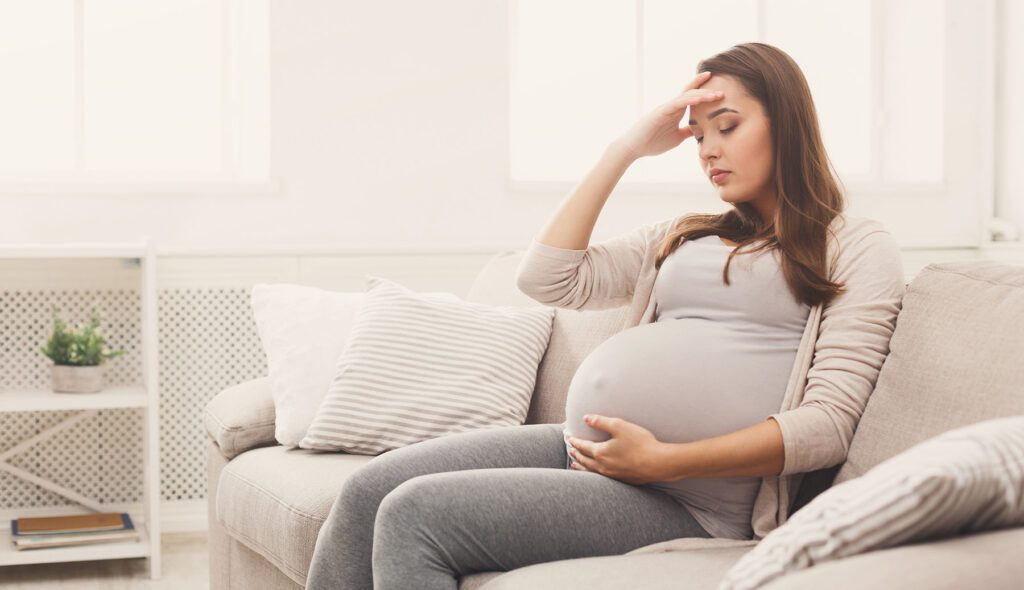How Does Pregnancy Impact Migraines?
- About 3-6% of women can experience their first migraine during pregnancy. In this setting, migraine typically occurs during the first trimester and is most often migraine with aura
- Migraine typically improve during the second and third trimesters. Increasing levels of estrogen are credited with providing improvement beginning towards the end of the first trimester and continuing during the second and third trimesters.
- For women who experience improvement during pregnancy, migraine often recurs within the first days to months after birth due to the sudden decline in estrogen.
Does breastfeeding change migraine frequency or severity?
It is possible that breastfeeding decreases the recurrence of migraine after pregnancy however evidence is conflicting.
Are there pregnancy and breastfeeding safe treatments for migraine?
- Non-pharmacologic therapies should always be tried as first line management during pregnancy. Lifestyle modification and trigger management are the mainstay of treatment. Risk factors for migraine progression should be addressed including obesity, sleep disturbance and psychiatric disorders. Women should be encouraged to eat regular meals with protein, engage in cardiovascular exercise, maintain a regulated and adequate sleep schedule and drink a large amount of fluids. Acupuncture and biofeedback are also useful. Acupuncture has evidence of benefit for migraine prevention and is thought to be safe when performed during pregnancy. Additionally, pregnant women treated with biofeedback had a 73% reduction in headaches compared to 29% reduction in the control group
- Interventional therapies and noninvasive neurostimulation devices should be considered given a favorable fetal risk profile. Such interventional therapies include peripheral nerve blocks, trigger point injections and sphenopalatine ganglion blocks
- There are four neuromodulation devices that have been FDA approved for the treatment of migraine: Cefaly device (transcutaneous supraorbital nerve stimulator approved for prophylactic and acute treatment of migraine), sTMS device (single-pulse transcranial magnetic stimulation device approved for both acute treatment of migraine with aura and as preventative therapy), Gammacore (noninvasive vagus nerve stimulator approved for the acute treatment of migraine and episodic cluster headache), Nerivio Migra (remote electrical neuromodulation for the acute treatment of migraine). These devices have excellent safety profiles and should be appropriate for pregnant women to use
- Safest acute treatments during pregnancy – acetaminophen, caffeine and metoclopramide

